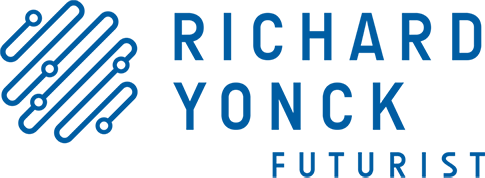Who Will Watch the Watchers?
Technological advances bring all sorts of change to our world. Such change often brings with it the need for new rules and legislation. The trick is in establishing laws that create a level playing field – one which can provide us adequate protection without putting a stranglehold on new developments. For many generations, we’ve looked to our institutions for such regulation and protection. But as the pace of change quickens, these same institutions are quickly falling behind. In many respects, it can even be argued that they’re starting to generate more problems than they’re resolving.
A recent article in The Economist (“Why the rules on copyright need to return to their roots”) recaps the original intent of copyright law as a means of balancing “the incentive to create with the interest that society has in free access to knowledge and art”. But changes over the last fifty years have dramatically increased the period of copyright protection, significantly shifting this balance. Increasing the length of copyright doesn’t encourage the creation of new work, but rather it limits its “dissemination, impact and influence.” This has contributed to a business model that is far more interested in profit than the creation of art and or the fostering of knowledge. As a result, today we have individuals receiving excessive fines for DRM violations and onerous battles over what is and isn’t fair use or in the public domain. This was hardly the original intent when the concept of copyright was established.

The patent process is dealing with similar shortcomings that have even more serious repercussions for the public good. For nearly thirty years, human genes have been considered patentable based on nothing more than their isolation and identification. This locking up of something that is so obviously a part of our natural world should never have been allowed to happen. Awarding these patents has hogtied research, slowing advancement in fields that have directly impacted an untold number of lives. The striking down of patents on two genes by a federal judge in March will hopefully open the floodgates and lead to the challenging of thousands more human gene patents. The two genes in question in this recent case, BRCA1 and BRCA2, are closely associated with breast and ovarian cancers. The idea that women have died because of legal wranglings over these genes is repellent.
In the summer of 2008, the world saw the beginning of a massive financial crisis. The exact details are still being uncovered, but it’s evident that much of the blame can be laid at the systematic deregulation that occurred in the US over the prior decade. The institutions responsible for this loosening did not give adequate consideration to the relationships and interdependencies between the different players, not to mention the increasingly automated, electronic trading made possible by the internet.
On a slightly more amusing, yet no less frightening note, a post in the Wall Street Journal Law Blog this week, describes a few gaps in the technical grasp of some of our Supreme Court Justices. In the course of a current constitutional rights case, Justices had to inquire about the difference between “email and a pager” and whether a text sent to someone in the midst of sending to someone else would get through. “Does it say: ‘Your call is important to us, and we will get back to you?’” one Justice asked. Another had difficulty with the concept of a service provider, asking “You mean the text doesn’t go right to me?” For a body hearing cases that will increasingly be dependent on technical knowledge, such a lack of basic understanding is very disturbing.
Whether we’re talking about copyright law, gene patents or financial regulation, the point I’m trying to make is this: In these accelerating times, our institutions, our courts, our regulatory bodies need to become as nimble, informed and responsive as the industries and technologies they seek to govern. So what can we do to ensure that they’re up to the challenge?

July 10, 2010 @ 4:21 pm
Copyright laws are holding back technology and society in general. Science of all things need to look at the options for cooperation not competition! I think it’s time we took the commercial aspect away from science, it just isn’t compatible!